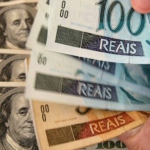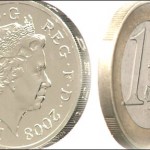Gold rose more than 1% on Friday as the dollar plunged after Federal Reserve Bank of Chicago President Charles Evans said that the U.S. economic outlook looks compatible with trimming Feds bond buying program but the lack of confidence could postpone tapering for 2014. The precious metal also drew support on speculation for a government shutdown if lawmakers fail to pass a budget for the 2014 fiscal year. Some upbeat data however provided support.
On the Comex division of the New York Mercantile Exchange, gold futures for settlement in December rose by 1.35% to $1 342.00 per troy ounce at 14:05 GMT. Prices rose to a session high of $1 344.40 during afternoon European trading, while days low stood at $1 320.60 per ounce. The precious metal fell by 0.6% on Thursday but erased its weekly decline and rose 1.1% this week after Fridays rebound.
Gold received a strong boost on Friday after Federal Reserve Bank of Chicago President Charles Evans said that the central bank needs more signs of strength in the economy to pare its bond purchases.
“The economic outlook strikes me as compatible with reducing the flow of purchase rate,” he said to reporters in Oslo today. “But whether or not well have enough confidence at the October meeting or the December meeting, I just cant say that with a lot of certainty. A lot of developments are still under way. At the moment the data doesn’t provide us with confidence to make major adjustments.”
On Monday, Federal Reserve Bank of New York President and vice chairman of the FOMC William Dudley said that policy makers must forcefully push against headwinds. “The economy still needs the support of a very accommodative monetary policy,” Dudley said. “Improving economic fundamentals versus fiscal drag and somewhat tighter financial conditions are pulling the economy in opposite directions, roughly canceling each other.”
Meanwhile, Atlanta Fed President Dennis Lockhart said that monetary policy should focus on creating a more dynamic economy. He also backed Fed’s bond purchasing program.
This comes after St. Louis Fed President James Bullard said on Friday that the Federal Reserve could still trim its monetary easing program in October if economic data lay support. “October is a live meeting,” he said for Bloomberg. “I’m not saying it’s going to happen, but the possibility exists.”
A Bloomberg survey of analysts conducted after Feds surprising decision to leave its monetary easing program intact in September showed that 24 of 41 economists polled expected the central bank to begin decelerating its monetary stimulus in December.
Meanwhile, gold drew further support amid uncertainty whether U.S. lawmakers will pass a budget for the 2014 fiscal year beginning on October 1. The lack of agreement on the conflict over whether to stop funding the health-care overhaul started in 2010, known as Obamacare, has kept Congress from voting. Separately, lawmakers must vote to raise the country’s borrowing ceiling. Treasury Secretary Jacob Lew said that measures to avoid exceeding the debt limit will be exhausted by October 17.
The dollar index, which measures the greenbacks performance against a basket of six major peers, fell by 0.48% to 80.25 by 14:04 GMT. The December contract ranged between days high of 80.70 and an 8-month low of 80.21, minutes after the release of the sentiment report. The U.S. currency gauge rose by 0.3% on Thursday but extended its weekly decline to 0.4% following Fridays retreat.
Dollar-priced commodities tend to trade inversely to the greenback. Weakening of the dollar makes dollar-denominated raw materials cheaper for foreign currency holders and boosts their appeal as an alternative investment.
U.S. data
Gold was initially pressured after data showed that American households earned and spent more money in August than the previous month, indicating that the U.S. economy continued to pick up. The Commerce Department reported today that families Personal Income met expectations and rose by 0.4% last month, while Julys reading received an upward revision to 0.2% after initially rising by 0.1%.
Higher income led to higher expenditures with the government agencys statistics showing a 0.3% increase in Personal Spending. The reading met analysts projections and exceeded Julys estimate, which was also revised up to 0.2% after initially marking a 0.1% increase.
Paul Ashworth, an economist at Capital Economics in Toronto, said for Reuters: “The pick-up in income growth in August suggests that consumption growth may even accelerate in the fourth quarter.”
The data put a lid in gold gains as it supported the view that the Federal Reserve might pare its bond purchases in the fourth quarter as the increase in taxes in January and cuts to the federal budget in March seemed to pull back the economy less as the year went on.
Fridays last set of data however pushed the U.S. dollar to the lowest since February. The final reading for September of the Thomson Reuters/University of Michigans overall index on consumer sentiment fell to a five-month low of 77.5 after surging to 82.1 in August. The reading underperformed analysts expectations for a surge to 78.0 but was still above Septembers preliminary mid-month reading of 76.8.
Survey director Richard Curtin said in a statement: “While few consumers expected a federal shutdown, complaints about government policies have risen, and more importantly, prospects for job growth have diminished.”





